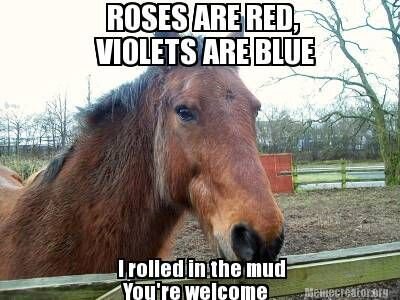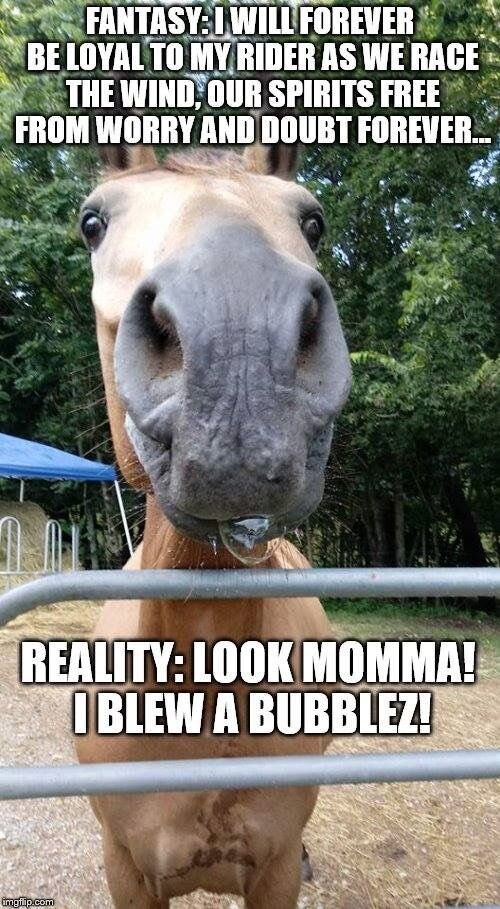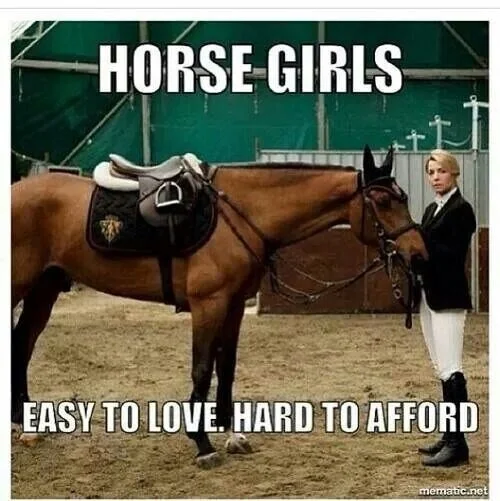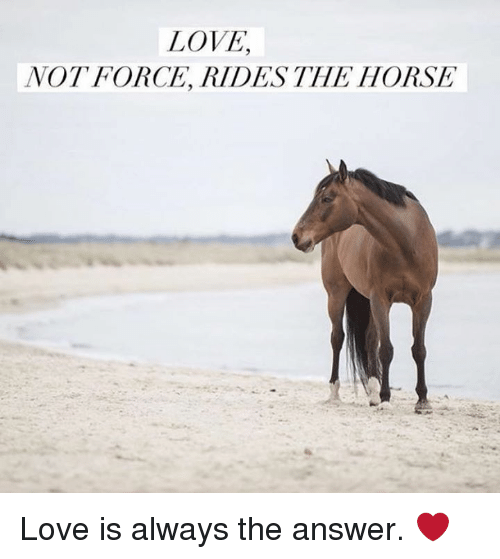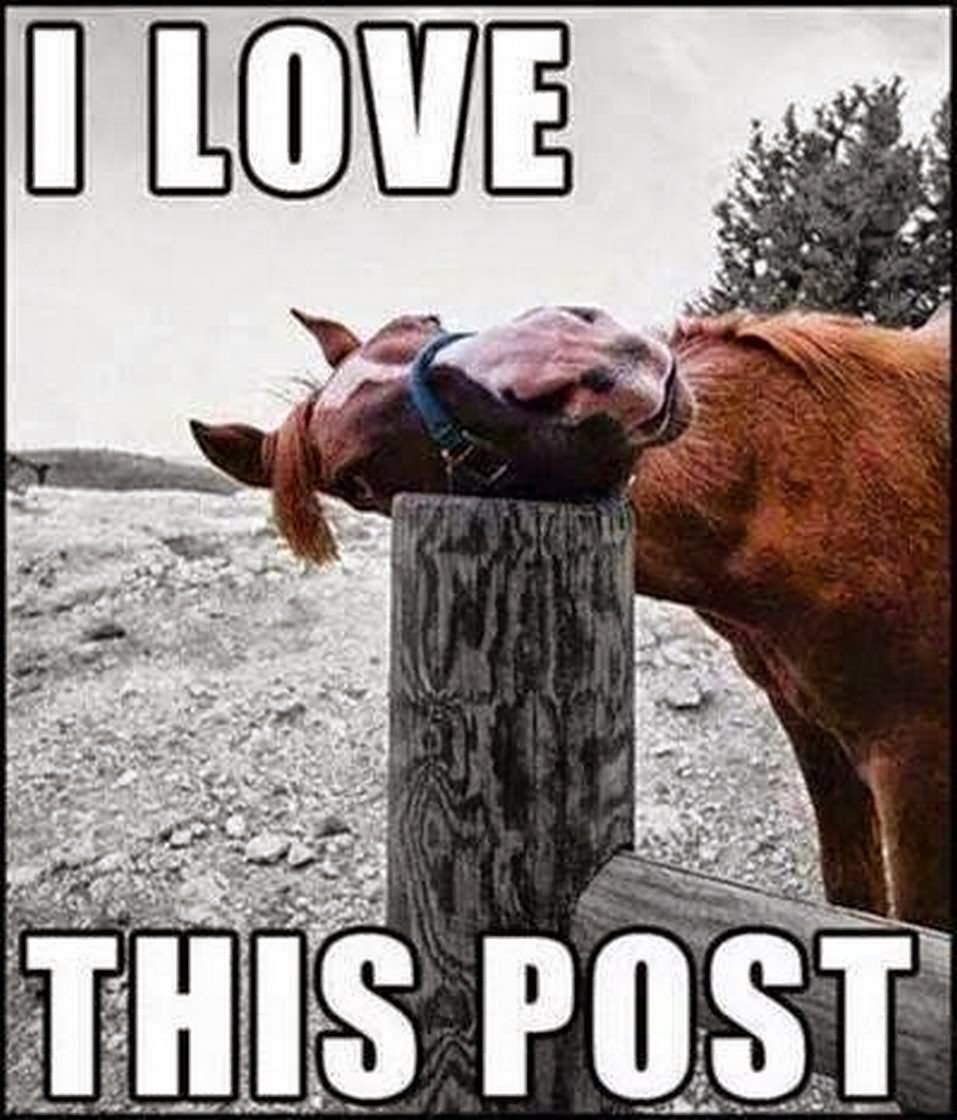What Is "Trainability"?
And are you providing it for your horse?
Are you supporting your horses ability to be trained?
Trainability refers to the ability for your horse to process the education your are providing. It requires a willingness and desire to work together as you both progress.
It is unfortunate that many training techniques actually discourage “trainability” - although these techniques will continue to state that they get results.
I agree they can get results:
Sometimes that result is a horse that has been bullied into submission, and has no way of communicating his lack of understanding.
Sometimes that result is a horse that has been forced to shut down emotionally, because they are constantly exposed to adverse situations and then expected to not respond in any way.
Finally, sometimes that result is a horse that is deemed ‘unsafe’, ‘unsound’ or dangerous. Sometimes that result is another horse on the doggers truck.
It’s not always doom and gloom. Some horses come through traditional training programs and can do well.
But so many horse’s don’t thrive in traditional training methods - and neither do their owners.
This is why Trainability became such an importance focus for me, and it is why I will always put the concept of first do no harm in the fore-front of any work I do. It is why I work so closely with Katie - to give more horse owners the capability, knowledge and skills to change the world of their horse.
When we open our horses up to becoming trainable, we open them to a whole new world. A world that allows them:
To openly communicate with you, express their confusion or understanding to the task at hand;
To understand that we are the leader, but we are not going to punish them for something they didn’t understand, but will help them through until they do;
To feel confident and safe enough to be curious, instead of being reactive to new stimuli;
& to show their personality in a totally new light.
Even more than that, it teaches us, as people:
To better understand our horse;
Methods that we can apply to our horse regardless of education level;
& how to be a better horse person.
That is why Katie Boniface has put together the Holistic Horse Handling Program . It is a selection of exercises, activities and theory that shows you, step by step, how to work through the challenge of making your horse more trainable.
Let the way you train your horse reflect the love you feel. Sign up to Holistic horse handling program waitlist today
How Different Horses Support Rider Development
How riding different horses can challenge and grow you as a rider.
Can riding different horses benefit riders?
Simply put, yes!
I could stop writing right here, but I feel I should probably elaborate.
No single horse is the same - they are a combination of their genetics, their muscular development, their stage of training, their learnt behaviours, the interactions they have had with their environment, tightly bound by personality and bundled into a gorgeous, tidy package that is known as HORSE.
And just like every person could teach us something new, so can every horse.
My equine story starts with Natalia, a gorgeous grey Arabian mare of 11yrs, intermediately educated, and essentially every beginners dream under saddle. Like almost every Arab, she had some quirks, but once you were in the saddle she was a calm protector (most of the time). Natty taught me a lot in 3 years, including how much I loved the mare attitude (so much like my own) and how the right approach to riding can benefit both rider and horse. When we lost Natty to a sudden, severe illness, I felt like my world had imploded, but I made a promise to her and myself to keep helping horses and growing the gifts she gave me.
Next, was Pedro, an older schoolmaster Thoroughbred gelding. This beautiful, placid boy was just the right start after loosing my beloved girl, and taught me to focus on my seat and core as he had a tendency to stumble in our initial riding days. I also learnt a lot more as Katie helped me through instruction on how to correct these movements and biomechanical deficiencies. Pedro also taught me that no matter how placid a horse is, you shouldn't be complacent! I apparently am not as breakable as I thought as it only took 3 weeks to get over the bruised shoulder that was the result of my first adult fall - funny how that happens when you're heading one way and your horse is suddenly going the other direction!
Katie's number one rule of riding - keep the horse between you and the ground.
Custard came into my life when a friend suggested he needed someone to love him - yep, I'm a sucker. Custard had never had a horrible life, but he had never truly been loved either, being shuffled from one home to another several times in the previous few years. This had left Custard with some serious trust, separation anxiety and herd-bonding issues. It was on Custard I discovered how easily I could be unnerved when I didn't have the feeling of conversation - something that Custard had no idea existed as I could only assume he was always bullied into submission by his previous riders. It took a good 3 months to feel comfortable riding my boyo as he finally started to understand that it was ok if he physically couldn't do something, as long as he tried or 'spoke' to his rider, we would listen.
This week I also got the chance to ride another new horse Rabbit, a 7yr old Paint x. Riding Rabbit once taught me something Katie had trying to teach me for years - how opening my chest really impacts your riding for the better.
I could keep going on, but I don't want to bore you. The honest truth of the situation is that some of us have the opportunity to ride many horses, and the rest of us only have the one. So how can we benefit from the lessons of different horses?
Try playing 'Pony Swap' - my best friend and I do so regularly with our lessons to keep ourselves, and our horses, fresh to new ideas and lessons
Riding schools offer a large variety of horses with different personalities
Take the opportunity to go on trail rides outside of your area with other horses
Recognise your limitations with your riding, and make the effort to correct them - we can get a little 'lazy' with riding our own horses as we can anticipate their reactions.
Riding different horses can challenge and grow you as a rider. If this simply isn't an option for you, challenge your riding and your horses development, and grow together.
Happy Trails!
Looking for more specific content?
Have a question you are seeking answers to? Send us a message and we will create a blog!




